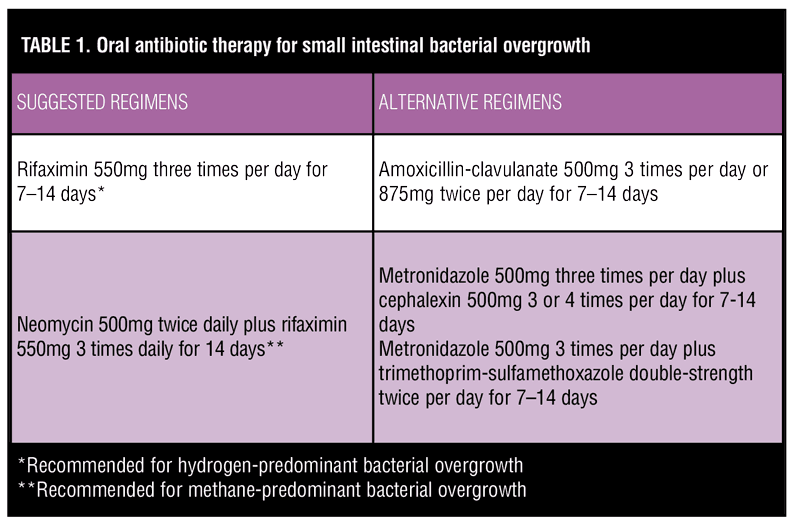

The therapeutic approach to SIBO is oriented towards resolving predisposing conditions, and is supported by antibiotic treatment to restore the normal small intestinal microflora and by modifications of dietary habits for symptomatic relief. 9 Moreover, an ideal regimen should include drugs with low side-effect profile, that is a rare condition with common broad-spectrum absorbable antibiotics proposed for S. Limited numbers of controlled studies have shown systemic antibiotics (norfloxacin and metronidazole) to be efficacious. As overgrowth may occur either by a mix of aerobic and anaerobic flora or by purely aerobic flora, an effective antibiotic treatment should act against several bacteria species. Diagnosis of SIBO is challenging due to the low specificity of symptoms, the frequent association with other diseases of the gastrointestinal tract and the absence of optimal objective diagnostic tests. Depending on your particular condition there are several options for treatment: specific diet, probiotics, and natural or pharmaceutical antimicrobials. Treatment, usually with antibiotics, aims to provide symptom relief through eradication of bacteria in the small intestine. Gastric acid secretion and intestinal clearance provide the qualitative and quantitative partitioning of intestinal bacteria small intestinal bacteria overgrowth (SIBO) occurs when these barrier mechanisms fail. and other means to reduce intestinal gas are recommended to treat this entity. A huge number of bacteria are hosted in the gastrointestinal tract, following a gradient increasing towards the colon. Bacterial overgrowth of the small bowel is usually treated with antibiotics.


 0 kommentar(er)
0 kommentar(er)
